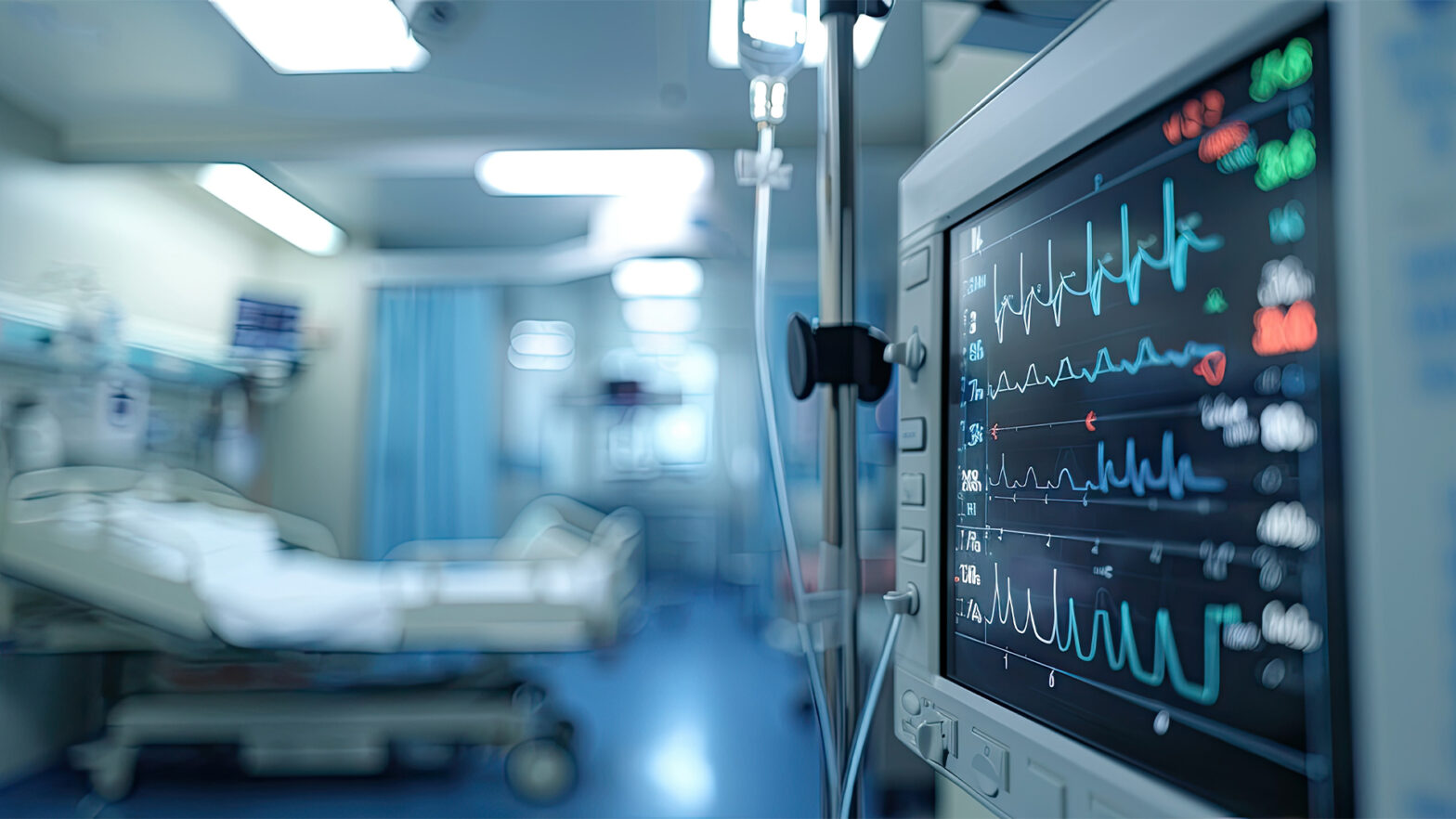
By Andrew Byrne, Sales and Operations Manager at Distec Ltd
Like many areas of the healthcare sector, critical care units are under increasing pressure. An ageing population, the aftermath of the COVID-19 pandemic, and widespread industrial action have led to waiting lists hitting an all-time high and resources being stretched to breaking point.
As a result, efficiency and resource allocation within these units is suffering, but what is the answer to the problem? One approach is the integration of medical-grade computers with customisable medical carts, transforming them from simple trolleys into vital components of patient care.
The Evolution of Medical Carts
When we think of medical carts, the traditional image of a trolley full of bandages, medications, and patient charts comes to mind. However, technological advancements are redefining their role, making them invaluable in modern healthcare settings.
Today, medical carts are sophisticated mobile units equipped with cutting-edge technology, designed to improve patient care by providing healthcare professionals with immediate access to critical information such as recent procedures, treatment plans, and current medication.
The transformation of these medical carts involves the integration of multiple digital devices, including advanced computing systems, high-resolution medical-grade touchscreen computers, and wireless connectivity for real-time data access and updates.
Because medical carts are compliant with strict regulatory standards like IEC 60601, they don’t interfere with other sensitive electrical equipment and enable interconnectivity across the hospital ecosystem.
Enhancing Patient Care Through Technology
There’s no ‘silver bullet’ when it comes to solving the many problems the healthcare system faces. However, technology offers a way of reducing the pressure on staff and departments, as well as enhancing the patient experience.
For example, incorporating Electronic Health Records (EHRs), mobile telemedicine capabilities, and smart medication management systems, customisable medical carts can support healthcare professionals with real-time data at the point of need. This approach enables doctors to make important treatment decisions immediately, without the need for further testing or outpatient appointments.
The nature of critical care means medical staff are always on their feet and constantly moving between departments to meet the needs of patients under their care. To support the intensity in a critical care unit, portable touchscreen medical-grade devices with high-resolution displays enable doctors and nurses to carry out their work on the go.
Furthermore, because medical-grade computers and customisable carts reduce the need for healthcare workers to leave the bedsides of patients, they can provide more direct and personalised care, leading to better patient outcomes.
This innovative approach to critical care creates a more responsive and efficient environment. The combination of these two solutions reduces the burden on healthcare professionals and encourages a shift to a patient-centric model, which is essential for improving treatment outcomes and patient satisfaction.
Eliminating Human Error and Reducing Fatigue
We’re all human and in the fast-paced environment of a hospital, fatigue can lead to human error. The level of demand for critical care fluctuates throughout every shift, leaving staff under intense pressure to deliver the best possible care for each patient. However, as wait times increase, so does the risk of misdiagnosis.
That’s where customisable medical carts and medical grade computers come in. They function as a safety net for staff, capturing real-time data from source to drive better decision making in pressurised situations. Built-in alerting functions reduce the reliance on manual charting, vastly reducing the risk of human error and misdiagnosis.
Integral to the functioning of a critical care ward, this technology is designed to keep a track of vital signs and update medical staff as to the conditions of patients. Medical grade computers collect, analyse, and store patient data, encouraging collaboration amongst multidisciplinary teams via streamlined data workflows, leading to effective triage and improved treatment pathways.
Conserving Space with Compact Alternatives
Medical carts are a welcome addition to hospitals, enhancing the delivery of healthcare. But it is important to note that they cannot singlehandedly stem the tide of waiting lists. In fact, there may be occasions where a medical cart is impractical owing to its size and space constraints of critical care and neonatal wards.
A combination of fixed and mobile PCs can help overcome the space issue, delivering medical cart functionality in a more compact device. Healthcare Information Terminals sit at the bedside of patients, performing monitoring capabilities and enhancing data security through separate Internet (patient use) and intranet (caregiver use) traffic. Mobile equivalents such as Medical Tablet and Panel PCs enable healthcare professionals to carry out work on the move, offering all in one functionality and an easy-to-use touchscreen to record changes in a patient’s condition.
By introducing other interconnected hardware and specialist medical devices alongside medical carts, hospitals can equip their staff with the technological means to accurately capture patient data and facilitate effective diagnoses. Such devices supplement the hard work of doctors and nurses and if they can perform their jobs optimally, this can improve the patient experience and reduce the time spent between hospital admission and discharge.
Data is the Key to Unlocking Efficiency
Responsiveness is the number one measurable for the delivery of critical care. But because of increased patient admissions and ever-growing waiting lists, hospital staff are under even more pressure to deliver the best possible patient care.
Healthcare professionals need all the help they can get and fortunately, the introduction of medical grade computers and customisable medical carts have enabled hospital staff to not only expedite the delivery of healthcare but provide personalised treatments to every patient.
Data is the key to unlocking operational efficiency in a hospital setting, and technology that is capable of harnessing and processing this data from source will help hospitals deliver optimal care to its patients.

















